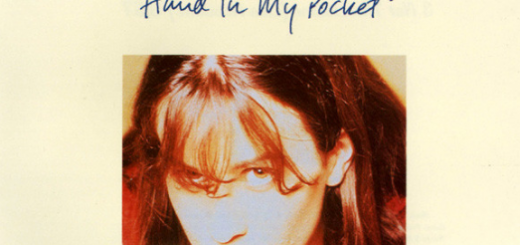Thank U by Alanis Morissette Lyrics Meaning – A Journey Through Gratitude and Self-Discovery
Lyrics
How ’bout stopping eating when I’m full up?
How ’bout them transparent dangling carrots?
How ’bout that ever elusive kudo?
Thank you India
Thank you terror
Thank you disillusionment
Thank you frailty
Thank you consequence
Thank you thank you silence
How ’bout me not blaming you for everything?
How ’bout me enjoying the moment for once?
How ’bout how good it feels to finally forgive you?
How ’bout grieving it all one at a time?
Thank you India
Thank you terror
Thank you disillusionment
Thank you frailty
Thank you consequence
Thank you thank you silence
The moment I let go of it was the moment
I got more than I could handle
The moment I jumped off of it
Was the moment I touched down
How ’bout no longer being masochistic?
How ’bout remembering your divinity?
How ’bout unabashedly bawling your eyes out?
How ’bout not equating death with stopping?
Thank you India
Thank you providence
Thank you disillusionment
Thank you nothingness
Thank you clarity
Thank you, thank you silence
Yeah, yeah
Oh, oh, oh
Oh, oh, oh
Oh, oh, oh, oh, oh
When Alanis Morissette released ‘Thank U’ in 1998, it struck a chord with listeners worldwide, unraveling an intricate tapestry of gratitude and introspection. A departure from the angst that saturated ‘Jagged Little Pill’, this song from her following album ‘Supposed Former Infatuation Junkie’ marks a turning point in Morissette’s musical evolution, embracing vulnerability and healing. Examining its lyrics provides a window into a transformative life experience that is both deeply personal and universally relatable.
‘Thank U’ is more than just a cascade of ambiguous thanks; it’s a raw examination of life’s complexities. From acknowledging one’s own flaws to experiencing the depths of emotional release, Morissette crafts a narrative that goes beyond surface interactions with the world around us. Below, we dissect the layers and pivotal moments within the song, offering insight into the profound messages Morissette weaves through her poetic finesse.
The Cultural Awakening Behind ‘Thank You India’
The titular appreciation for India serves as the linchpin of Morissette’s song, suggesting a profound personal awakening. After her meteoric rise to fame, the trip to India became her pilgrimage, a journey shedding the skin of celebrity. It’s more than just a postcard from abroad – it represents a grappling with newfound spirituality and the embrace of a culture steeped in historical wisdom and self-reflection, evoking a gratitude for the lessons learned and the peace found away from Western clamor.
This ode to India isn’t just a cultural nod; it mirrors the internal shift towards mindfulness and presence. By thanking an entire nation, Morissette acknowledges the power of place and environment in shaping one’s journey to self-awareness and the importance of stepping out of one’s comfort zone as a catalyst for growth.
Finding the Silver Lining in ‘Thank You Terror’
One of the song’s most jarring lines, ‘Thank you terror,’ encapsulates Morissette’s resolve to find growth in the grips of fear. Far from promoting anguish, it confronts the notion that even our darkest emotions serve a purpose. Fear becomes the obstacle course for bravery; terror, the unlikely teacher of resilience. By embracing these moments rather than shying away, Morissette demonstrates an acceptance of life’s full spectrum — one where fear is transmuted into a deep sense of courage and appreciation for the trials that forge our strongest selves.
Thank you terror, then, becomes a mantra of empowerment – a signifier that she has faced her demons and emerged not only intact but enriched. Through this acknowledgment, Morissette reframes adversity as a necessary component of the human experience, one that can yield unexpected gifts of insight and fortitude.
The Intimate Confession of Forgiveness and Release
A heartfelt and gripping theme within the song is the power of forgiveness. Morissette’s inquiry, ‘How ’bout how good it feels to finally forgive you?’ speaks to breaking free from the chains of resentment and the liberation that follows forgiveness. It is in this vulnerable admittance that listeners find a mirror to their own struggles with letting go of past hurts, connecting with the catharsis that accompanies genuine emotional release.
Forgiveness here extends beyond others — it’s also about self-forgiveness. This dual release is a cleansing process, shedding the weight of blame and guilt, and moving forward unburdened. As a healing balm, ‘Thank U’ becomes an anthem for anyone striving to find peace through acceptance and the release of pent-up emotions.
Unwrapping ‘The Hidden Meaning’ of Clarity and Silence
As the song progresses, Morissette reveals layers that venture beyond thankfulness into deeper self-inquiry. ‘Thank you clarity’ and ‘Thank you silence’ evoke the value of stillness and mental lucidity in an ever-noisy world. Silence is not empty; it’s a canvas for introspection and clarity — a precious commodity in an age of relentless stimuli. By highlighting these ethereal themes, Morissette champions the quiet resolve necessary for self-actualization and inner peace.
Astutely, these lines suggest that amidst the chatter of life, one’s most profound revelations come from within the stillness of being. Clarity doesn’t shout; it whispers, and silence becomes the conduit for understanding ourselves and the universe we inhabit. This delicate balance is the heart of Morissette’s hidden message — a call to listeners to find their own silence, their clarity, within the cacophony of existence.
Highlighting the Song’s Most Memorable Lines
‘The moment I let go of it, was the moment I got more than I could handle.’ This line is a tantalizing paradox, capturing the moment of surrender as a pivotal turning point. It’s a bold declaration that in relinquishing control, Morissette stumbled upon the abundance of life’s offerings. The sentiment conveyed here is counterintuitive yet profoundly resonant — it speaks to the beauty and fullness that often trail our moments of deepest vulnerability.
‘How ’bout no longer being masochistic? How ’bout remembering your divinity?’ These lines are a gut punch to self-destruction and a reminder of our innate worth. Morissette nudges us to put aside our self-imposed suffering and recall our inherent dignity, thus setting the stage for self-love and acceptance. It’s a powerful invocation to honor ourselves as much as we do the external forces that shape our journey.








